#this is so image triad of tyrell
Explore tagged Tumblr posts
Text
HOLY SHIT
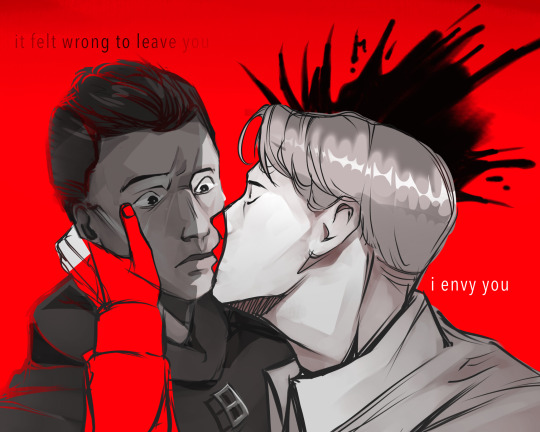
Tyrelliot but it’s that whole colour people trend thingamajig, kinda cool I suppose. I don’t really like how Elliot looks in this but shhhhh…
Arghhh I need to rant about them, they make me so sad. Watch the cut content from s4 with them, it’s so sweet I’m sad they got rid of it. Seriously they have one of the most messy and complex dynamics ever and I love them and I hate them so much.

Here’s a cat picture, love you bro
#mr robot#elliot alderson#tyrell wellick#tyrelliot#tyrobot#word#this is so image triad of tyrell#ahh#the hand#THE COLOURS
12 notes
·
View notes
Link
Thanks to @londonjb for the lead.
This article explains a lot of the psychological motivations of the Prometheus Crew and David. Very long and may require a tea, coffee or whisky.
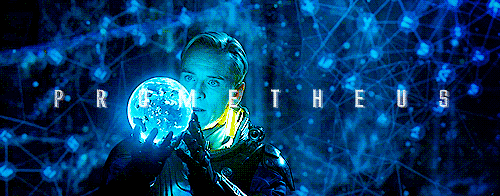
There's been a lot of speculation around Prometheus, mainly over whether certain elements of the plot constitute sloppiness on the parts of Damon Lindelof and Ridley Scott, or whether they are intentional elements of a puzzle film. In a way, the reception to the film is a lot like Blade Runner, and the film shares as much DNA with that Ridley Scott work as it does with Alien. In fact, I could imagine the three pictures now representing three points on a single timeline of future human history. Certainly, the interpretation of Phillip Dick's Replicants in Scott's Blade Runner and his portrayal of synthetic humans in Prometheus and Alien express certain misgivings over the nature of humanity and whether we are too immature to be creators of responsible entities. They are related metaphors from a single author.

The current brou-ha-ha in the web community is, of all things, "were the Engineers mad at humanity for killing Jesus?" I'm going to leave this to theologians who like science fiction. In short, this way-out-there question is based on the fact that parts of the facility in the film were about 2000 years old, and that Ridley Scott seems to have implied in a recent interview that he and Lindelof discussed whether Jesus was an Engineer sent to redirect humanity at the start of the Roman Empire. Much like the "Is Deckard a Replicant?" question from Blade Runner, this will provide fans with decades of debate that is largely besides the point. It is true that the film can be seen as a twisted spin on the New Testament, with wanderers arriving to an inhospitable desert sanctuary on Christmas Eve, an impossible birth announced by a sexless homunculus, isolation to a "manger" for an impossible delivery, an amoral potentate seeking miracles without redemptive faith, shattering of a "Temple Curtain," a resurrection of the Impossible Child from his tomb, and bodily assumption of the Mother into Heaven. The designation of the moonbase, LV 223, apparently leads to a verse in Leviticus (22:3) that has to do with defiling the Temple and angering the Israelite God. But again, these are matters beyond my ability to discuss them above a cocktail party level.
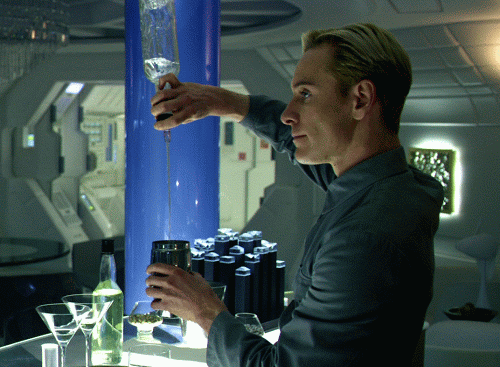
Instead, let's just deal with two main aspects of the film, and where psychiatric theories can give us insight and further appreciation of the narrative. Both concern the filmmakers' ideas about empathy versus individualistic survivalism. One thread runs through the relationship between the Engineers and Humanity, as illustrated by the puzzle in the film, the responses of different crew members to the Engineer trap being sprung, and Liz Shaw's story. The other thread concerns the very odd familial triad of Weyland, his daughter Vickers, and most importantly, the inhuman "child" David. I'll get back to this triad in the next diary, and touch back on Blade Runner and Alien in the process.
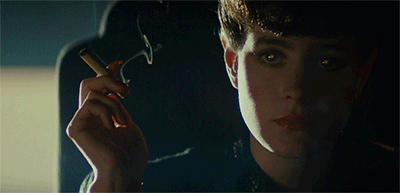
At its simplest level, the conflict between empathy and individualistic survivalism is one of sacrifice versus self-preservation. The latter has always seemed to be the evolutionary imperative, the "animal" nature of humanity, leaving empathy seemingly in the provenance of theology and certain secular philosophies. Even the early psychoanalysts saw the "base impulses" of Id to be primary, consuming and reproducing as the animals did, and the "civilizing influences" of Superego to magically appear through the ministrations of parents and societal rules. We are now just coming to challenge these notions in earnest, as we find brain circuits vital to a sense of feeling the pain of others, and realizing that they are highly overlapping with the social learning circuits that likely gave our hominid ancestors a literal "leg up" on the quadrapedal competition through the manufacture and instruction in tool making/use. Cognitive neuroscientists like Jean Decety have found that self-reflection, painful remorse, identification with others, social responsiveness and autognosis (understanding one's own emotional/cognitive state) are all dependent on some of the same cortical real estate, and that learning from others is intimately tied into all of this on a basic wiring level. Paleoanthropology has begun to debate to what extent our balance of individual autonomy and group dynamics gave us advantages over other primates, apes and hominids. Richard Leakey succinctly expresses this as the idea that a bipedal creature will have great evolutionary pressure to cooperate, as an asocial biped with a broken leg will not be likely to survive. It doesn't just take a village to raise a child, it takes a village to live long enough to conceive one.

On its surface, of course, Prometheus is a Von Daniken-Esque story that steals back the holiness of empathy from these scholars of human brains, development and evolution. We have these impulses because our creators were the kinds of beings who would kill themselves in order to seed new worlds. They were also white and blue eyed, but let's not get too far off track now. The thing is, the film never conclusively establishes that they made us. The mythos hints at their visiting periodically and influencing cultures, as well as having a change of heart sometime in the early Roman Imperial period (although the root cause may have been in Asia or Africa or America or everywhere at once). It also states clearly that they are related to us genetically, and by extension, to Bonobos and Chimps. The thing is, the mythos is open-ended enough that it doesn't negate what we know scientifically, and several characters raise the incongruity of Shaw's interpretation with known biology. She sees the DNA match as validating her theories, but it only establishes a common lineage. The Engineers may have been a culture of humans so far advanced that they left Earth tens of millennia prior. Ridley Scott states that the opening sequence is meant to establish the Engineers' psychology, rather than it showing what happened on Earth. They are seeding many worlds, and they have an aim for the hominids here on Earth. More than that we do not find out.
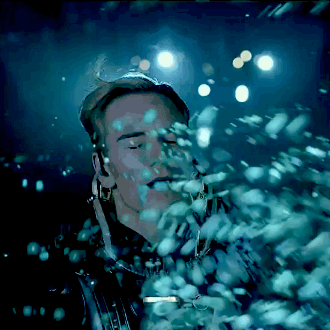
Thus, Von Daniken-Esque or not, the story is one of humanity falling short of loftier goals that involve the denial of self-preservation. This isn't just the Prometheus crew, or us chimps down here on Terra, but the Engineers of the LV 223 installation. The first we see them on LV 223, in a holo-playback, they are fleeing something. This something leads to widespread death and bodily defilement. It is the interaction of the bioactive muck with them that has led to this something. However, we know that the muck can do different things to different beings. It may have mutated some of the worms on the planet into body rending serpents. It turns the craven geologist into a rampaging wendigo gone amok. On the Engineer head with the panic center (locus ceruleus) activated, it is literally explosive, a dark mirror image to the gradual dissolve at the start of the film. And mixed with reproductive cells in humans, it leads to a rapidly gestating Xenomorph face hugger. At least one Xenomorph has already been unleashed by this process before the Prometheus gets there, as it is in a wall mural in the storage room, and this may have been the Something that hunted down the Engineers. But this is ostensibly the same (or similar) muck to the stuff at the start of the film, which is harsh but ultimately benevolent in result. Is the muck different, or does its effect depend on the user? What if the fear in the LV223 Engineers is what weaponized the substance? And conversely, what if the subtle effects of the substance on the Engineers made their motivations darker than that of their brethren? If they were as willing to die as their kinsperson at the beginning of the film, they could have launched a suicide mission, loaded up with the goop in their own bodies, and unleashed it upon landing and coming out of stasis. That isn't their plan. And that mural of the Xenomorph doesn't look like a warning. It looks like a shrine. Something is different about the psychology of these Engineers.

I wouldn't be a Science Fiction fan without my own pet theory. What if they never turned on us per se? What if they had some of this muck in select locations, away from most people's view, in various places on Earth? Then, whatever we did that was so messed up, whether it was unseating the Roman Republic, crucifying Jesus, destroying the Holy of Holies in Jerusalem (that's a good place to hide bioactive muck), having Russell Crowe fight Joaquin Phoenix, or some Dynastic Coup in China ... whatever it was polluted the goop with hostile intentions, and the Engineers took it to the LV 223 "Human-Engineer Visitor's Center" to see if they could fix it. This makes more sense than setting up a weapons facility on the moon to which they gave directions already. The Earth Embassy was retconned into a decontamination site for the Earth biomuck. This failed. It unleashed nightmarish biotech, but also changed the Engineers on the moon itself. At some point, the muck changed the thinking of the Engineers on that world, hence the mural deifying the Xenomorph and the stockpiling of the muck to unleash (or perhaps to venerate).

The best evidence for this failure of empathy on LV 223 is that one of the Engineers finally decides: "Screw this. I'm safe in this ship, so I'm going into stasis." When he comes out, he is not a high-minded angel. He is disappointed at Weyland, and responds by using the human's creation (David) as a blunt weapon. Now, he doesn't owe Weyland any more of an explanation than Dr Tyrell did for Roy Batty, when Roy had the same wish to look upon his creator and ask for more life. But when Tyrell hems and haws and refuses to try, we are supposed to see it as a flawed human move, and we almost sympathize with Batty's extreme reaction. Here, the clearly flawed being is the Engineer, and Shaw merely asks what went wrong. The Engineer believes itself to be above its creations, above its dead comrades, and above reproach. When it is stopped by an act of sacrifice by the Prometheus flight crew, it does not question its judgment of the little humans. It goes on a rampage to kill the human who questioned it. There is a lot of dialogue devoted to the flawed nature of David's creation and tutelage, but the implied narrative about creation is that our "guides" are also a decidedly mortal/flawed lot. David is the only character to explicitly state this, but the behavior of the Engineers, as much as it can be deciphered, is one of seemingly condemning behavior that they themselves are prone to carrying out. In a pinch, or under the effects of bad bioactive muck, or both, they opt for saving their own skins and lashing back at any and all who would threaten it.
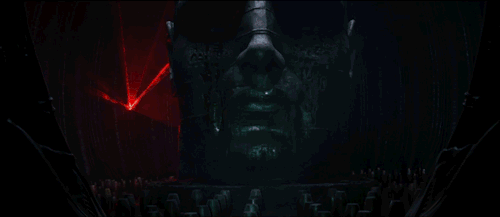
Maybe, then, the Engineers are the stand-in for the innate capacity for great acts in either direction. They are not the past, so much as what we could become. They are what we know instinctively is "in us." We can elect to take an inclusive view that sees all our acts, creations and neighbors as carrying pieces of us, and that leads to a wide net of preservation that may motivate us to act in a fashion that does not prioritize our own immediate interests or even our immediate safety. Or we can focus on threats, excluding others, attacking others, and seeing legacy in a very narrow light. As Pinker points out in "Better Angels of Our Nature," you can't take the group minded view if everyone around you is slashing their sword, so neither is automatically more adaptive. The flexibility to go back and forth is adaptive, so long as the overall trend among all people is towards the broader view. This is also not purely partisan, for those keeping score at home, although it is political. Here, most people would say, "Oh, we're progressives, so we take the altruistic view." Not when we focus on the threat from conservatives, and from my POV, rightly so. In fact, the "pearl clutchers" vs. "red meat progressive" arguments here are between the empathic vs. survivalist viewpoints. And I myself have alternated camps, depending on the item being debated.
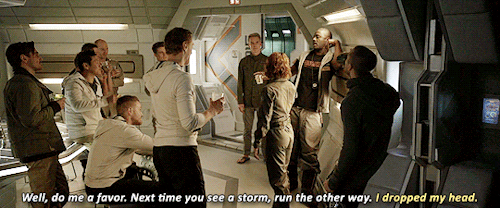
But back to Prometheus, and how the crew of tiny people is as variable as the Engineers. With the exception of three members, the crew is representative of a humanity without mythos. Here at DailyKos, we might see this as a good thing, an Earth clear-eyed and unbound from ancient superstition. However, mythology is a good thing. As first articulated by Henry James and later by Carl Jung, myth provides metaphors for the unfathomable, and allows people to cope with capriciousness in life. Not everything can be known in one person's lifetime, and this will confound the person who lacks stories to root his or her experience. Failure to have a sense of one's own story at the end of life is associated with despair or desperate actions, as per Erikson, and this task is difficult to achieve without a broader cultural story. Carrying myths is not the same as substituting belief for knowledge, as secular individuals who avidly read speculative fiction have a cosmic mythos without any degree of faith in it. Prometheus' crew, for the most part, are not these kinds of secular individuals. They speak in terms of money, sex, power, and discoverable fact. Even Weyland, who has some degree of unscientific belief, does not want a cosmic framework for his life, only cosmic powers; he has not achieved Eriksonian ego integrity at the end, serving as an Ozymandias figure placed into space opera. It is really Shaw and her partner who strive to rediscover a mythos, and neither utilizes it to allow for mystery. They must have a personal relationship with the Engineers, which places them on equal footing. Given that the Engineers are not gods, this is logically reasonable, but in so far as they are inscrutable this is not a recipe for success. Perhaps we could even go so far as to say that the rise of personal-level theology and the decline of mystery about 2000 years ago is what caused the catastrophe with/among the Engineers.
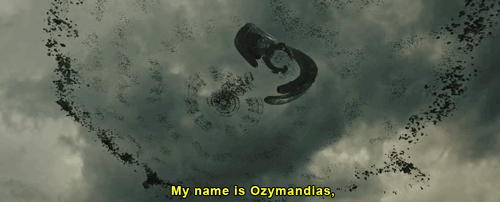
Many of the crew have been locked in by a lifetime of exposure to corporate materialism. The geologist is so set on his job that he is more frightened of the mission expanding into archeo-biomedicine than he is at the sight of the dead bodies or malevolent biotech, although the latter disturb him plenty. He has become overly specialized.

The biologist is almost a parody of how fundamentalists see many of us here, unwilling to challenge past theory and implicitly trusting of fauna that clearly looks sinister to us. Neither of them can see well anymore, nor critically examine information outside their training. No wonder we witness signal glitches and errant static and broken visors do them in: outside data is increasingly meaningless to their thought processes. And the LV 223 trap plays on their flawed singular-mindedness when it transforms them. The more motivated biologist is hollowed out by the creatures he wishes to study. The greedier geologist is transformed into a singular minded killing machine, mowing down anything living in his path.

Even the doctor, who does not meet a bitter end, merely acts as a functionary. Eventually, unquestioning of her directives, she is a willing pawn in David's side projects. She has become slave to a machine, less creative than a robot. There is no meaning left in any of these professionals' lives, a lack which is merely made explicit as the Prometheus mission goes off the rails. The corporation has hollowed out and stripped much of the empathic thinking from these people. More tragically, their survivalism is no longer individualistic, having been utilized by Weyland Corporation as a subversive means of control. Slavoj Zizek, a popular psychoanalyst and philosopher in Slovenia, has written volumes on the lack created by the modern materialist imperative to continually consume in the pursuit of individual enjoyment. I await his response to this element of the film, as I am pretty sure he will carry out an even more detailed analysis of it.
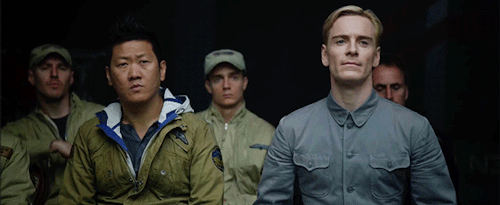
This control is not absolute, however, as the flight crew manages to break out of it. For much of the film, they speak flippantly about bets and sex and collector's items they have bought. They retaliate impotently against their female boss by using objectifying language, brought to a head by Idris Elba's captain challenging her humanity by daring her to have sex with him. If she can satisfy lust, then she's not a machine, recapitulating the erroneous thinking of the humans in Blade Runner. Even his devil-may-care warbling of "Love the One You're With," which elicited a chuckle from the audience, has a darker undertone that the sexual revolution has reached a flaccidly unsatisfying and meaningless hedonistic conclusion. To touch back to Freud, there is only Id craving other things, with atrophied Egos that cannot generate complete senses of autonomous selves. Yet, faced with the destruction of the planet, these men find something else to prize on it. We never know their individual motivations in detail, although the Captain speaks for a time on the imperative that the rest of humanity be able to go on. They will not receive things or even recognition for this. They will not collect on their bets with each other. It does not seem that they anticipate heavenly reward either, although they allude vaguely to "the other side." Instead, the idea that they share enough basic humanity with those back home is sufficient to trigger the "other circuitry" that acts in opposition to consuming and persisting. Even unrecognized, something of themselves will remain in distant and close relatives who will live to see another day. They cannot articulate it, but their bravery speaks it. And it is instinctual, whereas the other impulses have been reinforced by the civilization, in concert with more recent psychological theory that does not see one or the other impulse as more innate.

Let's finish by looking a bit at Shaw. She has been turned into an outsider by her own life circumstances. She has serially lost both parents as a child and has discovered she is infertile. Thus, she is cut off from the most immediate level of the biological thread early on. Her deeply held theories on human development are not widely accepted, as she must rely on an eccentric billionaire for funding (although the state of governmental grants is unclear in this world's backstory). Her talents do not readily bring her acclaim or power. There is nothing driving her other than personal satisfaction. She wants to be proven right, but since she already believes she is correct, data is always spun into confirming her narrative. There is very little narcissistic weakness for the world of 2089 to play off of and manipulate. That said, she is hardly concerned with humanity as a whole, except as a study piece. She and her partner form a pair walled off to some extent from others, and she herself seems largely walled off from instinct. The drive present is one to know. In some fashion, she is the character most alike to David, rather than Vickers.
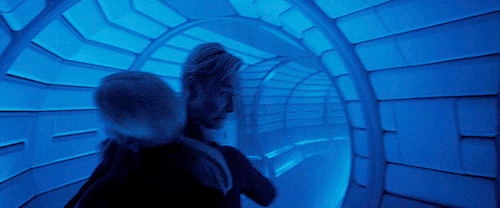
According to Jeffrey Arnett, who formulated the concept of Emerging Adulthood about 20 years ago, the transition from adolescence to full adulthood in the modern age is one of determining where to live, what to do, and who to love. His ideas are an expansion on concepts of adult identity first articulated by the first generation of Freudians, as well as the young adult conflict of Intimacy vs. Isolation postulated by Erikson. This phase of development is supposed to be marked by repeated failure, as well as multiple breaks and rapprochement with the elder generation. Inability to have a solid sense of answers to the three lifestyle questions by the mid-30s is often associated with continued immaturity in interpersonal interactions and/or a midlife crisis. Shaw, who has been robbed of an elder generation and does not appear to have replacement proxies, has followed the example of her widowed father. There has never been a chance for rebellion. She sees her life's work as primary, which determines her partner and her world-traversing lifestyle. She enters her mid-30s without a hint of crisis, but also without much ability to interact with people outside her work. This is not the careerism present in the other crew, as she can think critically about a wide range of topics, but her social development seems frozen. She relies upon her partner as the spokesperson and interlocutor for much of the first half of the film. In fact, until the crisis reaches its climax, she almost appears to have a less rich emotional inner life than David (who as we will discuss in the next diary, is likely hiding his responses).

This changes as her partner is ripped from her. This not only challenges her assumptions about the benevolence of the Engineers, but strips her of her intermediary. She is exposed to the hostile world for the first time since the death of her father, making David's touch back to this event all the more cruel. Having opted for one clearly intimate relationship, she can choose total Isolation or find a way to rely on others. As she is betrayed by David, by the medical crew, by Vickers and Weyland, and by the Engineer, she relies more and more on her life's mission. Her quest for answers, never at odds with whatever the details of her Christian faith are, becomes even more central. And her Christian faith cannot be that of the literalist, even if she believes that Jesus and the Engineers are one and the same, as she has ideas clearly divergent from the account in Genesis. Pursuing that mission first takes her on a survivalist path, and then shifts to a more inclusive view.
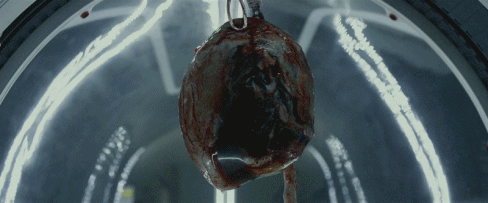
The medical bay Caesarean is a survivalist action in some ways but not others. On one level, she is the archetypal female action heroine, socking out anyone standing between her and the med bay. She endures pain and injury to live another day. However, here, it is an unearthly child that threatens to kill her. Her child, in a sense, as it shares some genetic material with her, or at the very least with that of her partner. But Shaw is uniquely qualified to recognize that this creature is an invader rather than part of a continuing biological thread, as she already sees herself as outside that ongoing chain. Since this is not reproduction, there is no primal level gain in sacrificing herself for it. I am shocked that the Fundamentalists have not seized on this scene as a grotesque of the Virgin Birth, but more surprised still that either side in the Culture Wars has not seen how this is a reflection of the zeitgeist as we confront questions of delivering or terminating pregnancies with foreknowledge of congenital/genetic malformations. The dedicated modern woman, with an adult existence centered outside of home and hearth, who elects to live another day rather than bring something she does not recognize as hers into this world. This is not to boil down difficult questions to simple science fiction struggles for life and death: no potential mother (or her partner) can see any real world pregnancy as merely an alien invader. Nonetheless, uncanny narrative threads in horror or gothic or any speculative story where reality's rules are suspended ends up reflecting that which cannot be spoken of comfortably in the real world. This is what Freud called Unheimlich, which means both Uncanny and "The Un-Hidden." This pregnancy, both enabled and poisoned by the Man of Technology (who is also a Corporate Man!), is only a terrible choice thrust upon her. And she must rely upon yet more corporate technology to save her, which she must both appropriate forcibly and then convince/reprogram to do the job. Is this not the impossible nightmare our moral arguments and advanced knowledge have thrust upon every woman, the seemingly barren and the fertile alike? Even now, do we not hear the Corporatist funded scolds redirecting women and their physicians to always choose measures to bring every pregnancy to delivery, like David and his effortless take-over of the Weyland med crew? Even in nations where access is not an issue and pollution is being addressed, is the foreknowledge we can now have not the genesis of such nightmares, made all the more scary by the fact that the developing fetus is part of our biological chain? This is survivalism turned in on itself.
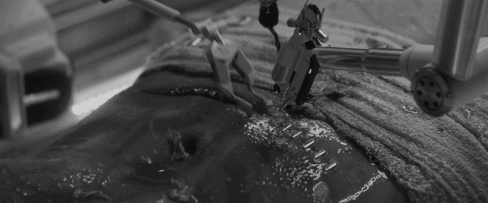
Having made the terrible choice to rip a creature from her womb, Shaw is now met with almost preternatural calm by David, Vickers and Weyland. She is not taken back to the cryo-beds, nor arrested, or even reprimanded. Weyland is more concerned with her accompanying them on his quest for more life. The corporation and its godhead must persist. The implied option is: "If you will not bear a child for the corporation, will you nurture the corporation itself? If you will not act solely for yourself, can you broaden your worldview to support me?" However, these are purchases, not empathic pleas. Weyland does not come as the weary senescent in need of help. He announces that this has been his plan, that he is in control. Having just come from one crisis of modern feminism, are we now not smack dab in the middle of the other? If you will not bear a child, then you must be a company man. This is also the crisis of our aging population, where so much of the work is now in health care and elder care. Vickers and David are along for the ride, both for their own ends, and we will return to this in the next installment. But neither accompanies Weyland entirely because they want to take care of him, even though David has followed his programming and been attentive. They have farmed this work out to others: the scientists, the crew, the technology, the medics, and the Engineer. People who take "pink collar" jobs in our world may often start off entirely fueled by empathy and purpose, but can quickly get drawn into much more materialistic and unempathic motivations. This is survivalism masquerading as an emphatic plea. Shaw does not take the bait, agreeing to go along but beginning to remember her core motivations.
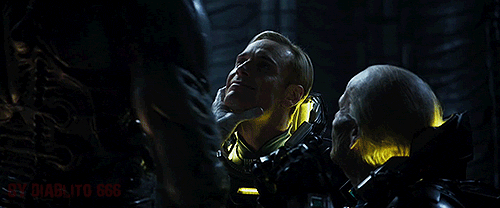
Everything changes when she witnesses the battle between the Engineer and Weyland. Denied his individualist/survivalist aims, Weyland is struck down by the Engineer, who is unimpressed with the narcissistic achievement of arriving to wake him up. Nevertheless, the Engineer is no less driven by the same instincts, refusing to engage in a discussion about actions/morals and simply maneuvering to continue his own existence. False gods abound in this room of mere mortals. Remembering her discussion with the Captain, and how his motivations are already in the process of change, she takes a chance and reaches out to another for help. She asks him to make a sacrifice that only he can, on behalf of countless people that neither of them will see again. And then, she takes an even bigger risk, providing David with a chance to help her and offering to help him. It is at this point that she regains her cross, lost when she was first infected with the growing invader within her. She has begun to participate in a genuine dialogue with others, offering assistance that may not be reciprocated and making requests that may not be fulfilled. She trusts not just in her life's mission, but in others that she is not intimate with, others who have betrayed her before. She does this because it is the only way to allow for Earth to survive, and as it turns out, her bet pays off for herself and for Earth. Ironically, the purely survivalist Xenomorph Facehugger acts as the Deus Ex Machina, bringing the corrupted Engineer to his end in the same way he had denied Weyland further existence. But it acts in its singular minded way, as it has no empathic instincts.
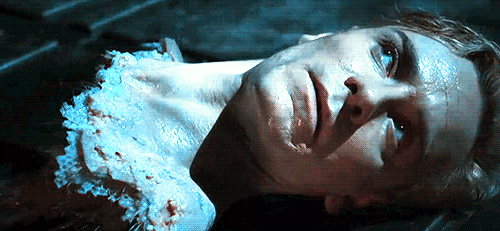
In the end, Shaw's growth and reconnecting to her full human nature allows David to learn the benefit of an empathic sense. The Immortal Man made Invalid, he is now the homunculus with broken legs, dependent on another person to help him along. Without him, Shaw cannot achieve her more intellectual mission; without her, David has life without further experience. We have seen the theoretical dawn of human empathy reborn, its survival advantage spelled out for us. This recapitulates the pre-denouement of Blade Runner with Deckard and Batty, but with a happier resolution for both actors, and stands in contrast to Alien where Ripley is left alone. In the next diary, we will go back and review the unhappy family of Vickers, Weyland and David, and speak of narcissism and malignant narcissism in more detail. In the process, we will see how such persons (corporate and human) that lack a full capacity for a sense of the other loom large as chief antagonists in Prometheus and our own world.
By Ptolemy Thursday Jun 21, 2012 · 3:56 AM AUSEST
Part II
#prometheus#david 8#meredith vickers#sir peter weyland#janek#ravel#chance#ford#elizabeth shaw#charlie holloway#alien prequel#alien movie#alien franchise#space horror#science fiction#scifi horror
7 notes
·
View notes